Montsalvache
Otto Rahn Biography
CHRONOLOGY 1904-1939
18 Feb 1904 Otto Rahn born, Michelstadt. Parents Karl & Clara (nee Hamburger)
1910-1916 Junior school at Bigen
1916-21 Secondary school at GrieBen
1922 obtains Baccalaureat
1924 obtains Bachelor in Philology and History
1930 Rahn begins his European travels (Paris, Provence, Switzerland,
Catalonia, Italy)
1931 Rahn visits French Pyrenees. Visits "Spion" in Pyrenees with Himmler and Abetz
1932 Rahn leads a Polaires expedition in Pyrenees
13.12.33 Rahn joins the German Writers Association
1934 publishes "Kreuzzug gegen Gral" (Crusade against the Grail)
1935 appointed to personal staff of Heinrich Himmler
29.2.36 Rahn joins Allgemeine-SS, member 276 208
1936 Rahn visits Iceland with 20 men
1937 publishes "Luzifers Hofgesind. Eine Reise zu denguten Gelstern Europa" (Lucifer's Court in Europe; Rahn sent back to Languedoc (Montsegur), says he will return in 1939. Time of alleged Corbieres visit?
20.4.37 promoted to sub-lieutenant (Untersturmfuhrer)
Sep-Dec1937 military service for "disciplinary reasons" at Oberbayern Regiment, Dachau<
The Cathar Myth: Church of the Holy Grail
The first to create the Cathar myth referred to in The Da Vinci Code was Napoléon Peyrat, a bourgeois and talented fabulist, concocted in the 1870s an account of the Cathars, which, though largely made up, still passes as truth in esoteric circles today . Another equally influential is Jules Doinel (Jules-Benoît Stanislas Doinel, a Freemason and Spiritist (See "The Making of Spiritism" in the first part of Da Vinci Code Matrix). He claimed that Gnosticism was the true religion behind Freemasonry. Thus it is in the second half of 19th century France that the Cathar-myth was born, to which Joseph Péladan was the first to add to this a mention of the Holy Grail in his short treatise From Parsifal to Don Quixote, the secret of the Troubadours.
Rennes-le-Chateau
Here, on the northern edge of the Pyrenees some 110 years ago, a Catholic priest named Bérengier Saunière became unbelievably wealthy overnight, seemingly after discovering something of immense value or significance in his church. He is said to have spent lavishly redesigning the tiny hill-top structure, building a strange belvedere tower called Tour Magdala and constructing a guest house known as Villa Bethania. He is also reported to have started acting oddly, erasing inscriptions on tomb stones, carrying out nocturnal excavations in both the church and churchyard, and receiving visitors totally beyond his standing as a parish curé in a rural part of southern France.
Otto Rahn – Otto Skorzeny Raiders of the Found Ark?
The founders of the Third Reich were esoterically involved with matters which unavoidably skirt the mysteries associated with the valley of Rennes-le-Chateau. Their interests were not however, confined to the ephemeral, there is evidence of the tenacity with which they pursued the material associations of the valley. Many assorted books on Rennes-le-Chateau mention that a battalion of German mining engineers made excavations in the area during World War Two.
There is a real, existing mountain in the south of France which is rumored to house the Holy Grail...
There is a real, existing mountain in the south of France which is rumored to house the Holy Grail. In fact, local legend says that the Grail has always been there, ever since a dove from Heaven descended upon the mountain, split it open with its beak, and dropped the Grail inside. This is the mountain of Montsegur, which was the last Cathari stronghold defeated by the Albigensian Crusade. (This was the only crusade waged by Christiandom against people who were Christians themselves.) The term “Cathar” was a catch-all term used by the Catholic Church for the numerous Gnostic Christian cults that proliferated across the Languedoc region of France during the Middle Ages. As they grew in numbers, they gradually became a threat to orthodox Christianity.
Revealed: Himmler's secret quest to locate the 'Aryan Holy Grail'
Heinrich Himmler, the head of the Nazi SS, made a secret wartime mission to an abbey in Spain in search of what he believed was the Aryan Holy Grail, a new book claims. Himmler visited the famous Montserrat Abbey near Barcelona where he thought he would find the Grail which Jesus Christ was said to have used to consecrate the Last Supper.
According to The Desecrated Abbey, by Montserrat Rico Góngora, the Reichsführer-SS thought if he could lay claim to the Holy Grail it would help Germany win the war and give him supernatural powers. The book claims that, far from being the King of the Jews, Himmler shared the outlandish belief with other leading Nazis that Jesus Christ was actually descended from Aryan stock.
Is a deserted village the best clue to the whereabouts of the Grail Castle?
The Grail and the story of King Arthur is a myth, in the sense that things got added to it. The first Grail account did not mention the nature of the Grail, whereas Wolfram von Eschenbach particularly identified it with a black stone, speculated by some to be a meteor, by others to be a cousin of the Ka’aba stone.
The story of the Grail is like the myth of Jesus: From an interesting person, believed to have resurrected, he grew into the son of god, to the child of a virgin birth, its father the Holy Spirit. One aspect of the Grail mythology is the addition of the “Grail castle” to the original mythology.
Holy Grail
Since the publication of The Da Vinci Code the debate rages as to what and where the true Holy Grail exists
Taken as a whole, the various renditions of the Holy Grail legend, whether they derive from Europe or Asia, imply that there are many forms that the Holy Grail can take.
These legends assert that the Holy Grail can be anything from the platter mentioned by Chrétien de Troyes, the first author of the Holy Grail legend, to the Cup of Christ alluded to by Robert de Boron, or even the Stone of Heaven mentioned by Wolfram von Eschenbach in Parzival.
Отто Ран и поиски Святого Грааля
Отто Ран (1904-1938 гг.), о котором говорили как о талантливом молодом литераторе и историке, был одной из действительно ярких личностей этого века. До своей загадочной смерти в возрасте 35 лет он успел написать две книги о катарах южной Франции: "Крестовый поход против Грааля" ("Kreuzzug gegen den Gral") и "Двор Люцифера" ("Luzifers Hofgesind"). О его жизни и трагической смерти ходят легенды. Хотя его книги оказали влияние на таких известных русскому читателю авторов как Тревор Равенскрофт (Trevor Ravenscroft) и Жан-Мишель Анжебер (Jean-Michel Angebert), на русский язык они никогда не переводились. В бестселлере 1982 года "Святая кровь, святой Грааль" (Holy Blood, Holy Grail - в русском переводе "Священная загадка") имя Отто Рана упоминается в небольшом, но интригующем примечании.
Otto Rahn and the Quest for the Holy Grail
Otto Rahn (1904-1938), described as a gifted young author and historian, was one of this century's truly fascinating figures. Prior to his mysterious death, at age 35, he wrote two books about the Cathars of southern France: *Kreuzzug gegen den Gral* ("Crusade Against the Grail") and *Luzifers Hofgesinf* ("Lucifer's Court"). Legends continue to surround both his life and tragic death. While his books influenced such authors as Trevor Ravenscroft and Jean-Michel Angebert, they were never translated into English. In the 1982 best selling book *Holy Blood, Holy Grail*, Otto Rahn's name appears in a small but intriguing footnote. Otto Rahn believed that he had found the location of the Holy Grail Mountain, the Montsalvat of legend, in the Cathar mountain fortress of Montsegur in the French Pyrenees. He was, says Prof. Joscelyn Godwin, "largely responsible for the mythological complex that associated the Cathars and Montsegur with the Holy Grail and its Castle."
Norma Lorre Goodrich in her own highly acclaimed work *The Holy Grail* pays tribute to Otto Rahn's "Crusade Against the Grail" describing it as "a wonderful book, a monument to this German idealist author, who died mysteriously during a descent in the Alps."

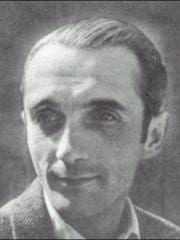
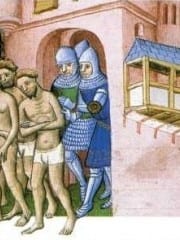
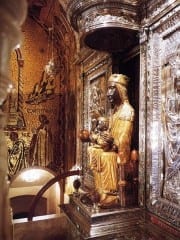
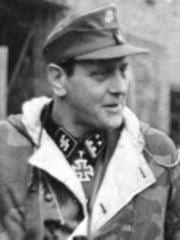
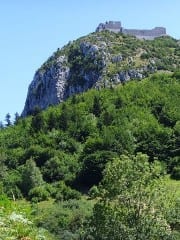
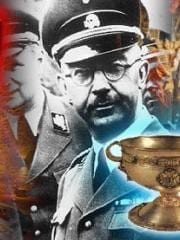
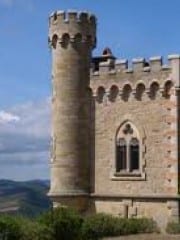
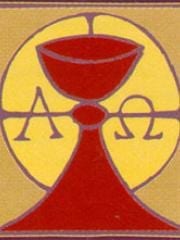
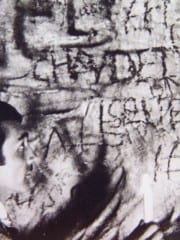
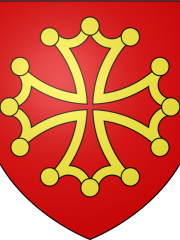
Recent comments
13 years 17 weeks ago
13 years 17 weeks ago
13 years 17 weeks ago
13 years 17 weeks ago
13 years 20 weeks ago
13 years 26 weeks ago